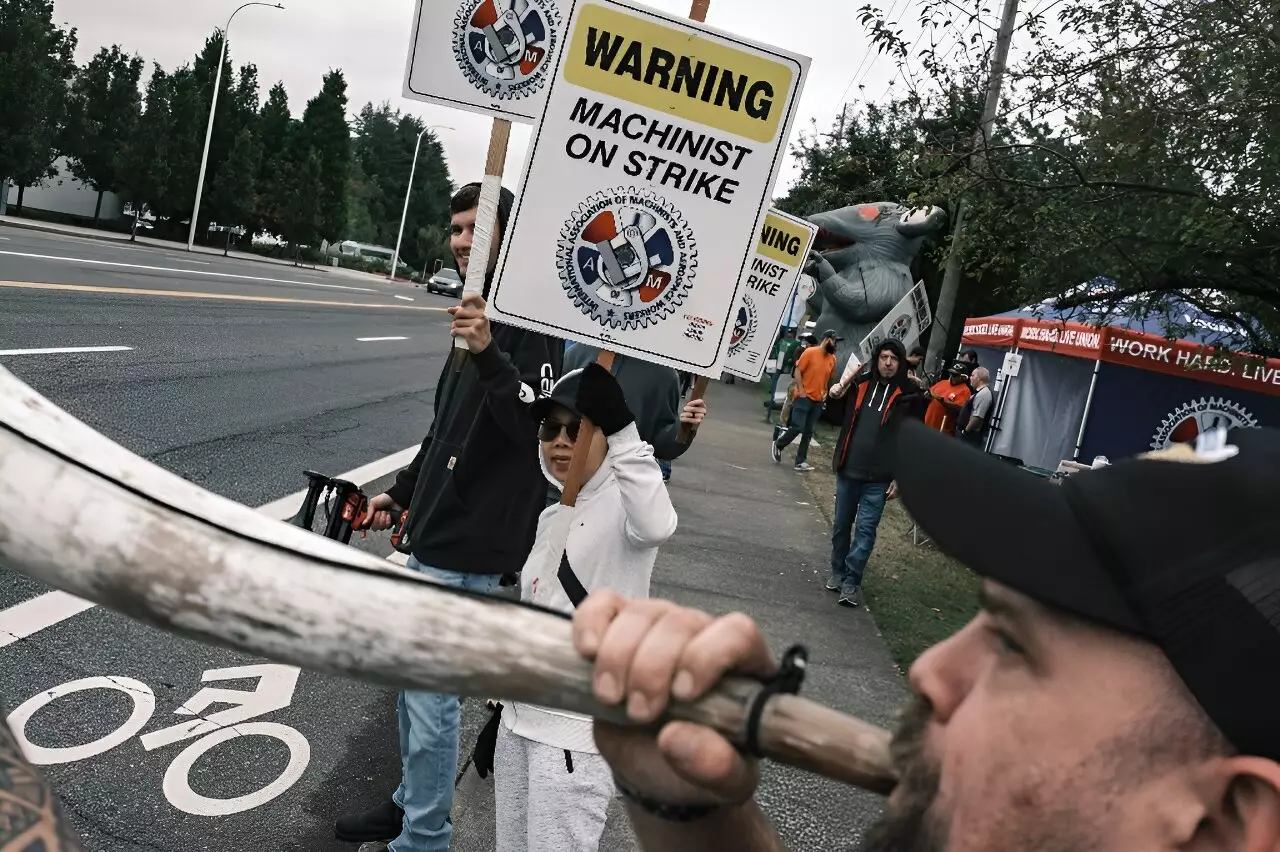The recent strike by approximately 33,000 employees at Boeing, initiated on September 13, has drawn significant attention not only for its scale but also for the underlying issues propelling the workers to walk off the job. The International Association of Machinists and Aerospace Workers (IAM) stated that the negotiations with Boeing came to a standstill, emphasizing the gravity of the workers’ grievances regarding wage, benefits, and job security. The Pacific Northwest workforce’s decision to reject a proposed contract reflects a collective dissatisfaction, pinpointing the urgent need for a more equitable agreement that meets the demands of the workers.
Complicated negotiations have ensued, with the IAM indicating that talks with Boeing “broke off” without any fruitful results. The union’s willingness to remain open for future discussions, whether direct or mediated, highlights not only their dedication to finding a resolution but also their acknowledgment that the current proposal is far from satisfactory. This impasse raises concerns regarding the future dynamics between Boeing and its employees, especially as the strike severely impacts production for crucial aircraft lines, such as the 737 MAX and 777.
Boeing’s declaration of its “best and final offer,” which included a proposed 30 percent wage increase and reinstatement of annual bonuses, was designed to placate the striking workers. However, the IAM quickly countered that this proposal fell short of addressing the workers’ core demands. The company’s attempt to frame this offer as a genuine effort toward resolving the conflict illustrates a potential disconnect between corporate perspectives and employee realities. This disjunction is evident in the IAM’s assertion that significant issues, such as pension plans and wage progression, remain unresolved.
A particularly contentious topic has been the pension issue, with the IAM expressing frustration over Boeing’s firm stance against unfreezing the defined benefit plan. This element is critical for many employees, as it directly affects their long-term financial security. The IAM’s insistence on further discussions about pensions and other workplace improvements underscores a broader call for not only immediate increases in pay but also sustainable economic benefits that reflect the loyalty and hard work of the employees.
As both sides navigate the complexities of labor negotiations, the future remains uncertain. The IAM’s resolution to engage in “frank discussions” indicates a hope for compromises that could lead to an eventual agreement. Still, the company’s tentative response suggests it may need to re-evaluate its strategies to effectively address worker concerns and reach a resolution. Ultimately, the ongoing strike serves as a catalyst for broader discussions about workers’ rights and the imperative for companies like Boeing to prioritize equitable treatment of their workforce. This conflict is not just a workplace issue; it is a reflection of the changing attitudes towards employee rights in the evolving landscape of American labor relations.

